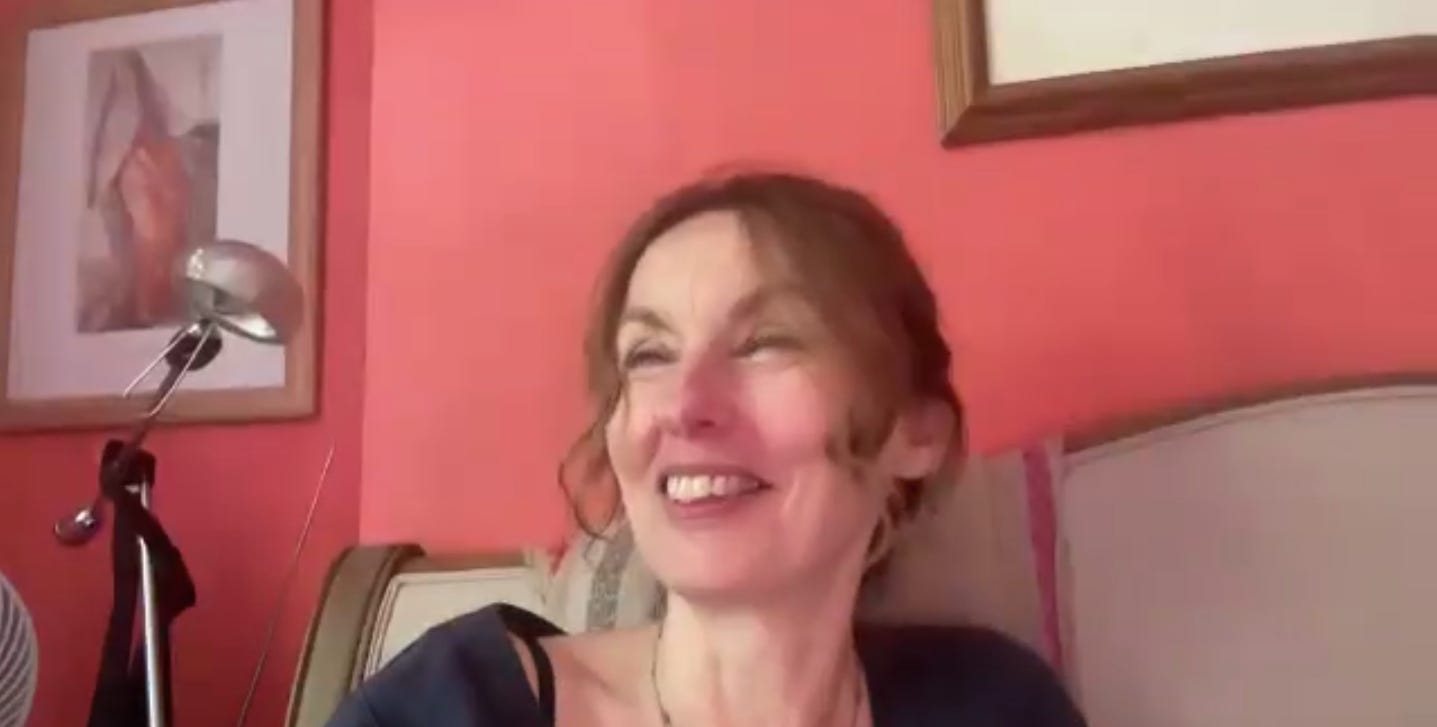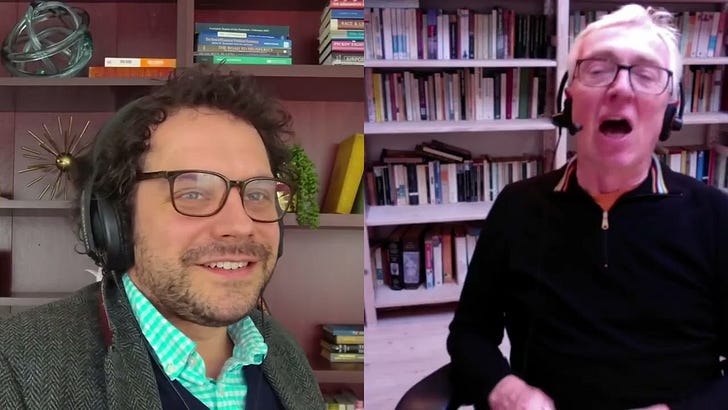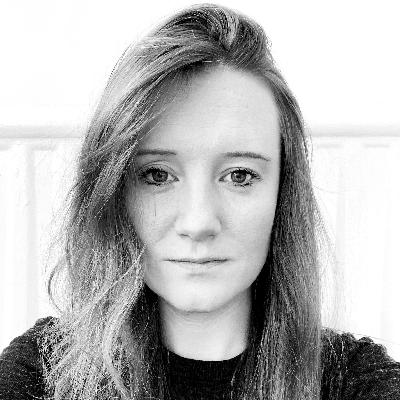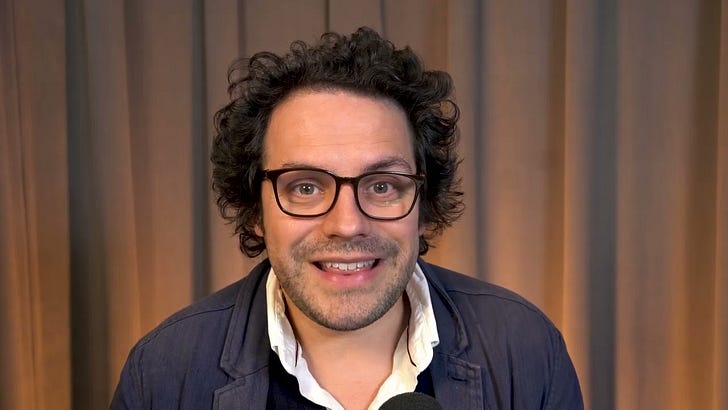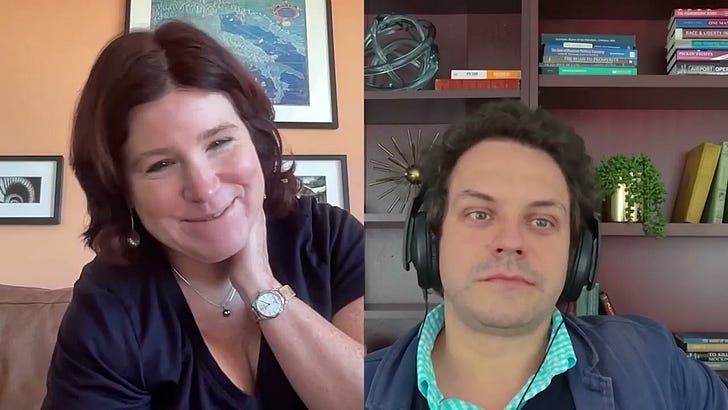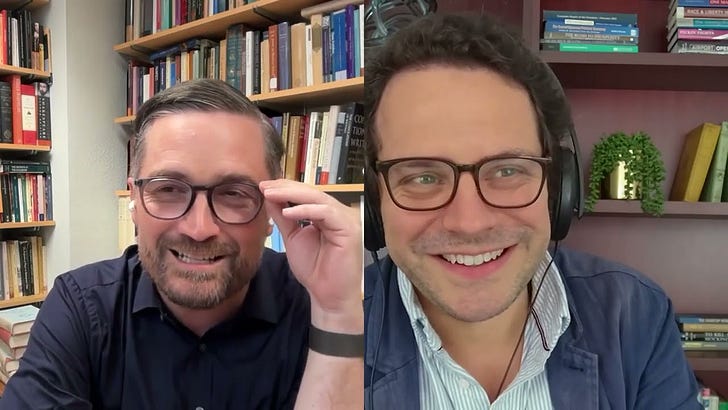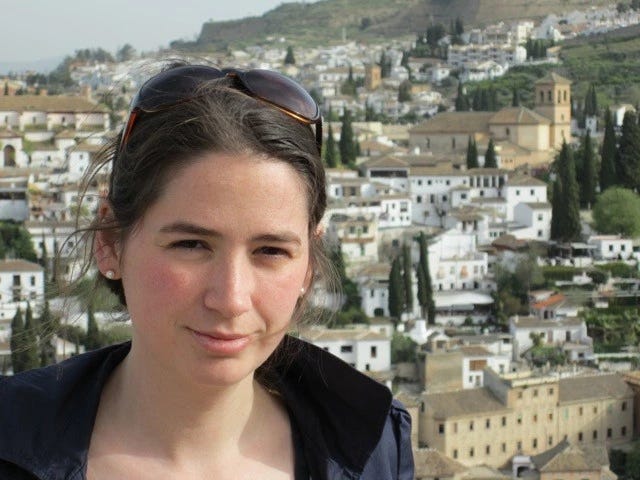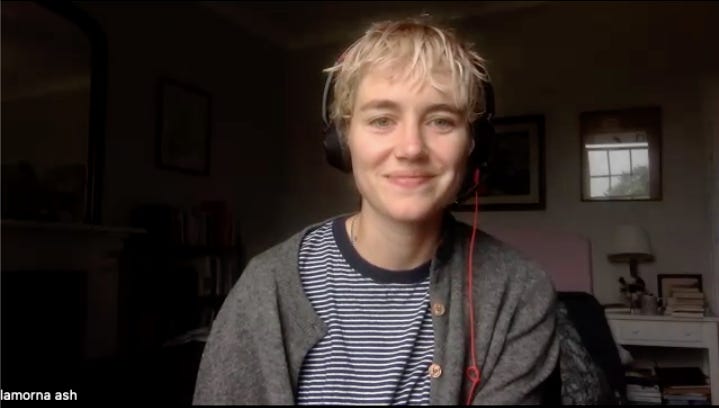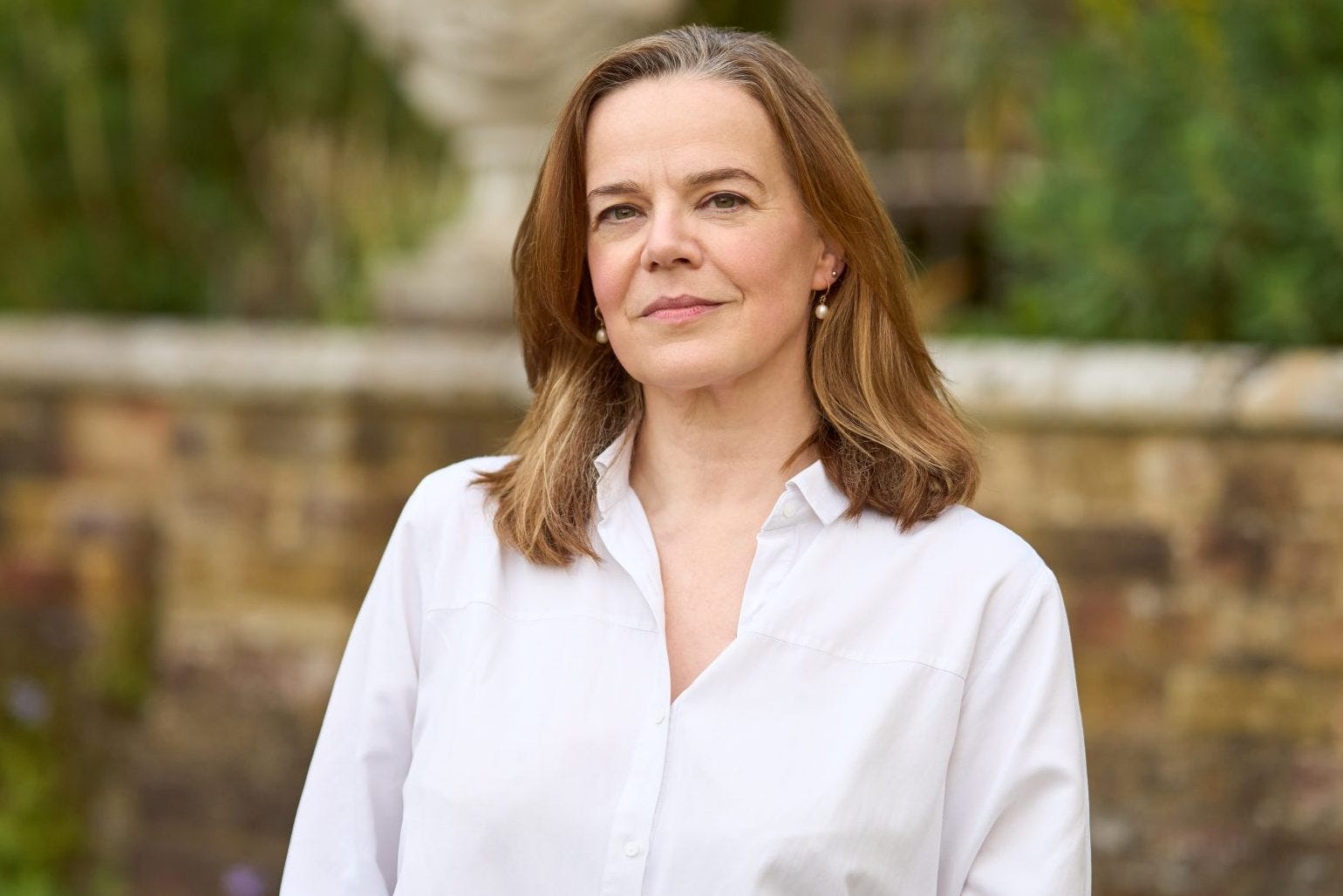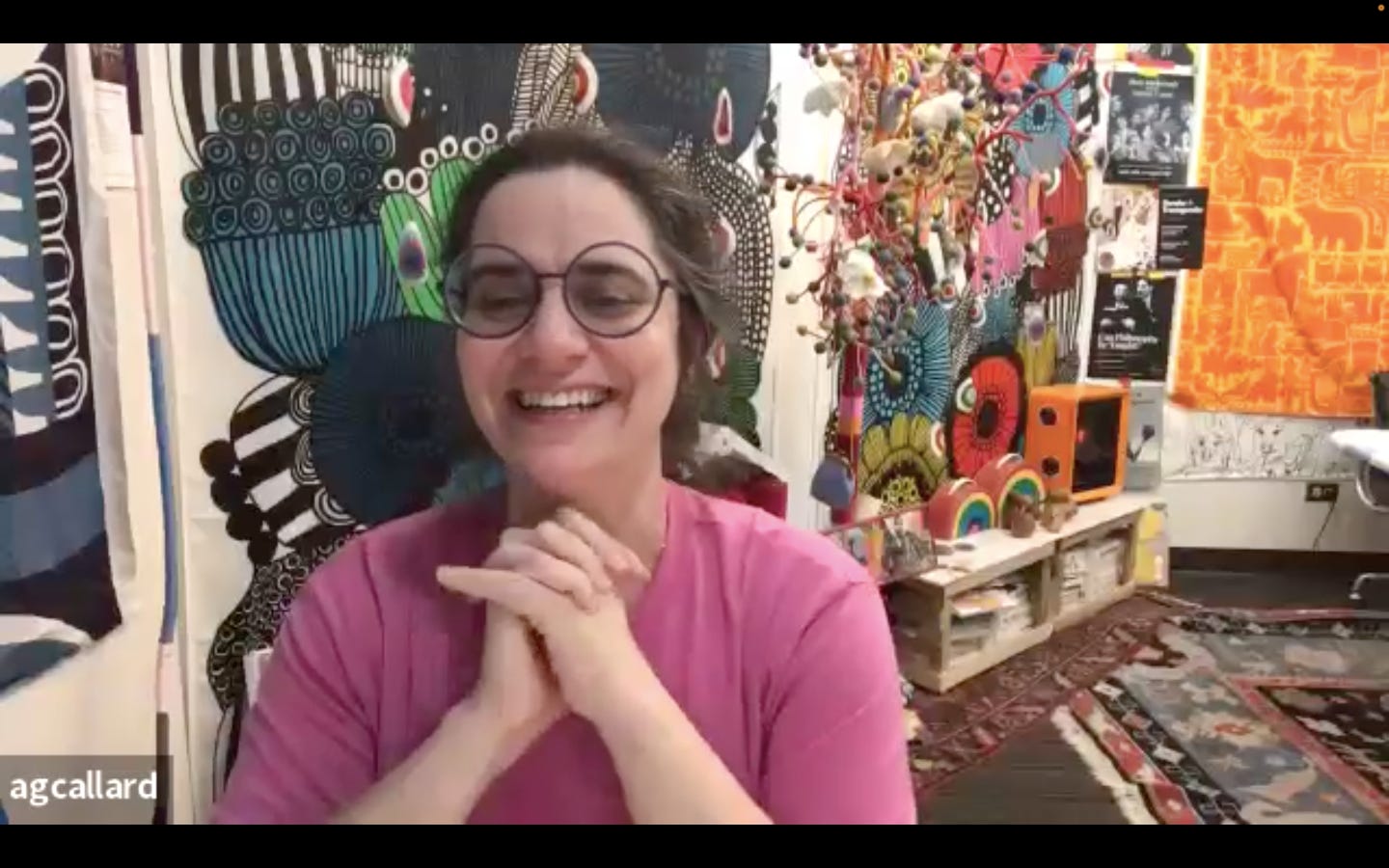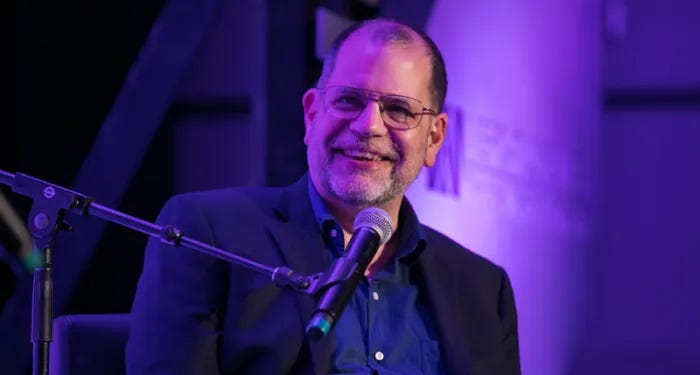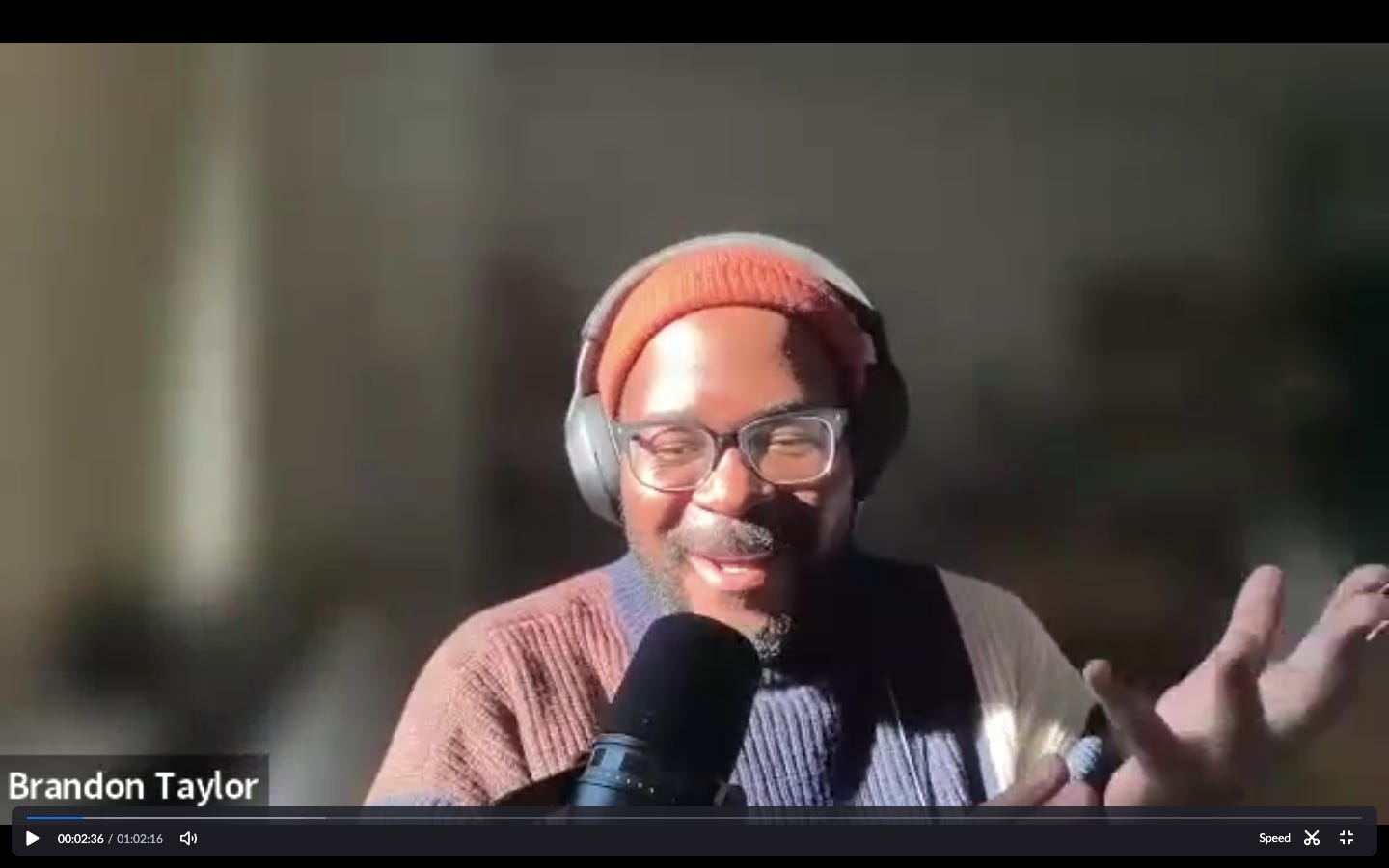Frances Wilson: T.S. Eliot is stealing my baked beans.
Description
Frances Wilson has written biographies of Dorothy Wordsworth, Thomas De Quincey, D.H. Lawrence, and, most recently, Muriel Spark. I thought Electric Spark was excellent. In my review, I wrote: “Wilson has done far more than string the facts together. She has created a strange and vivid portrait of one of the most curious of twentieth century novelists.” In this interview, we covered questions like why Thomas De Quincey is more widely read, why D.H. Lawrence’s best books aren’t his novels, Frances’s conversion to spookiness, what she thinks about a whole range of modern biographers, literature and parasocial relationships, Elizabeth Bowen, George Meredith, and plenty about Muriel Spark.
Here are two brief extracts. There is a full transcript below.
Henry: De Quincey and Lawrence were the people you wrote about before Muriel Spark, and even though they seem like three very different people, but in their own way, they're all a little bit mad, aren't they?
Frances: Yes, that is, I think, something that they have in common. It's something that I'm drawn to. I like writing about difficult people. I don't think I could write about anyone who wasn't difficult. I like difficult people in general. I like the fact that they pose a puzzle and they're hard to crack, and that their difficulty is laid out in their work and as a code. I like tackling really, really stubborn personalities as well. Yes, they were all a bit mad. The madness was what fuelled their journeys without doubt.
Henry: This must make it very hard as a biographer. Is there always a code to be cracked, or are you sometimes dealing with someone who is slippery and protean and uncrackable?
And.
Henry: People listening will be able to tell that Spark is a very spooky person in several different ways. She had what I suppose we would call spiritual beliefs to do with ghosts and other sorts of things. You had a sort of conversion of your own while writing this book, didn't you?
Frances: Yes, I did. [laughs] Every time I write a biography, I become very, very, very immersed in who I'm writing about. I learned this from Richard Holmes, who I see as a method biographer. He Footsteps his subjects. He becomes his subjects. I think I recognized when I first read Holmes's Coleridge, when I was a student, that this was how I also wanted to live. I wanted to live inside the minds of the people that I wrote about, because it was very preferable to live inside my own mind. Why not live inside the mind of someone really, really exciting, one with genius?
What I felt with Spark wasn't so much that I was immersed by-- I wasn't immersed by her. I felt actually possessed by her. I think this is the Spark effect. I think a lot of her friends felt like this. I think that her lovers possibly felt like this. There is an extraordinary force to her character, which absolutely lives on, even though she's dead, but only recently dead. The conversion I felt, I think, was that I have always been a very enlightenment thinker, very rational, very scientific, very Freudian in my approach to-- I will acknowledge the unconscious but no more.
By the time I finished with Spark, I'm pure woo-woo now.
Transcript
Henry: Today, I am talking to Frances Wilson. Frances is a biographer. Her latest book, Electric Spark, is a biography of the novelist Muriel Spark, but she has also written about Dorothy Wordsworth, Thomas De Quincey, DH Lawrence and others. Frances, welcome.
Frances Wilson: Thank you so much for having me on.
Henry: Why don't more people read Thomas De Quincey's work?
Frances: [laughs] Oh, God. We're going right into the deep end.
[laughter]
Frances: I think because there's too much of it. When I chose to write about Thomas De Quincey, I just followed one thread in his writing because Thomas De Quincey was an addict. One of the things he was addicted to was writing. He wrote far, far, far too much. He was a professional hack. He was a transcendental hack, if you like, because all of his writing he did while on opium, which made the sentences too long and too high and very, very hard to read.
When I wrote about him, I just followed his interest in murder. He was fascinated by murder as a fine art. The title of one of his best essays is On Murder as One of the Fine Arts. I was also interested in his relationship with Wordsworth. I twinned those together, which meant cutting out about 97% of the rest of his work. I think people do read his Confessions of an English Opium-Eater. I think that's a cult text. It was the memoir, if you want to call it a memoir, that kick-started the whole pharmaceutical memoir business on drugs.
It was also the first addict's memoir and the first recovery memoir, and I'd say also the first misery memoir. He's very much at the root of English literary culture. We're all De Quincey-an without knowing it, is my argument.
Henry: Oh, no, I fully agree. That's what surprises me, that they don't read him more often.
Frances: I know it's a shame, isn't it? Of all the Romantic Circle, he's the one who's the most exciting to read. Also, Lamb is wonderfully exciting to read as well, but Lamb's a tiny little bit more grounded than De Quincey, who was literally not grounded. He's floating in an opium haze above you.
[laughter]
Henry: What I liked about your book was the way you emphasized the book addiction, not just the opium addiction. It is shocking the way he piled up chests full of books and notebooks, and couldn't get into the room because there were too many books in there. He was [crosstalk].
Frances: Yes. He had this in common with Muriel Spark. He was a hoarder, but in a much more chaotic way than Spark, because, as you say, he piled up rooms with papers and books until he couldn't get into the room, and so just rented another room. He was someone who had no money at all. The no money he had went on paying rent for rooms, storing what we would be giving to Oxfam, or putting in the recycling bin. Then he'd forget that he was paying rent on all these rooms filled with his mountains of paper. The man was chaos.
Henry: What is D.H. Lawrence's best book?
Frances: Oh, my argument about Lawrence is that we've gone very badly wrong in our reading of him, in seeing him primarily as a novelist and only secondarily as an essayist and critic and short story writer, and poet. This is because of F.R. Leavis writing that celebration of him called D.H. Lawrence: Novelist, because novels are not the best of Lawrence. I think the best of his novels is absolutely, without doubt, Sons and Lovers. I think we should put the novels in the margins and put in the centre, the poems, travel writing.
Absolutely at the centre of the centre should be his studies in classic American literature. His criticism was- We still haven't come to terms with it. It was so good. We haven't heard all of Lawrence's various voices yet. When Lawrence was writing, contemporaries didn't think of Lawrence as a novelist at all. It was anyone's guess what he was going to come out with next. Sometimes it was a novel [laughs] and it was usually a rant about-- sometimes it was a prophecy. Posterity has not treated Lawrence well in any way, but I think where we've been most savage to him is in marginalizing his best writing.
Henry: The short fiction is truly extraordinary.
Frances: Isn't it?
Henry: I always thought Lawrence was someone I didn't want to read, and then I read the short fiction, and I was just obsessed.
Frances: It's because in the short fiction, he doesn't have time to go wrong. I think brevity was his perfect length. Give him too much space, and you know he's going to get on his soapbox and start ranting, start mansplaining. He was a terrible mansplainer. Mansplaining his versions of what had gone wrong in the world. It is like a drunk at the end of a too-long dinner party, and you really want to just bundle him out. Give him only a tiny bit of space, and he comes out with the perfection that is his writing.
Henry: De Quincey and Lawrence were the people you wrote about before Muriel Spark, and even though they seem like three very different people, but in their own way, they're all a little bit mad, aren't they?
Frances: Yes, that is, I think, something that they have in common. It's something that I'm drawn to. I like writing about difficult people. I don't think I could write about anyone who wasn't difficult. I like difficult people in general. I like the fact that they pose a puzzle and they're hard to crack, and that their difficulty is laid out in their work and as a code. I like tackling really, really stubborn personalities as well. Yes, they were all a bit mad. The madness was what fuelled their journeys without doubt.
Henry: This must make it very hard as a biographer. Is there always a code to be cracked, or are you sometimes dealing with someone who is slippery and protean and uncrackable?
Frances: I think that the way I approach biography is that there is a code to crack, but I'm not necessarily concerned with whether I crack it or not. I think it's just recognizing th

